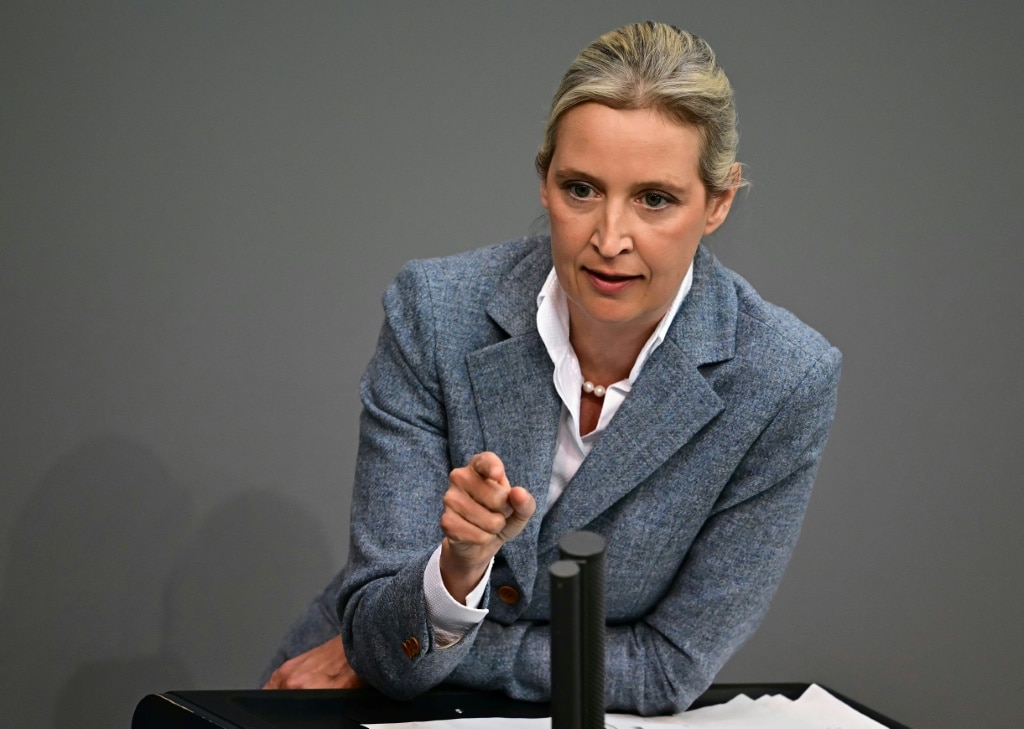Ford sees $1.5 bn tariff hit this year, suspends 2025 forecast
Ford sees $1.5 bn tariff hit this year, suspends 2025 forecast

Ford reported a 65 percent drop in first-quarter profits Monday, citing a near-term drag on auto sales from new vehicle launches, as it withdrew its forecast amid tariff uncertainty.
The carmaker estimated a full-year net hit of about $1.5 billion in adjusted operating earnings following President Donald Trump's myriad tariff actions since returning to the White House in January.
The company has implemented some supply chain changes to mitigate any blowback from Trump's tariffs, shaving $1 billion from the overall tariff drag, which Ford estimated at $2.5 billion after levies on imported finished vehicles, steel and aluminum and imported parts.
"Our teams have done a lot to minimize the impact of tariffs on our business," Chief Financial Officer Sherry House said on a conference call with reporters.
Profits came in at $471 million, beating analyst expectations but just over a third of the level in the 2024 period, with revenues falling five percent to $40.7 billion.
In the first quarter, Ford wholesale units fell seven percent from the year-ago level, a drop the automaker had previously telegraphed due to slowed output at plants in Kentucky and Michigan where new vehicles are being launched.
In March, Ford began shipping the new Ford Expedition and Lincoln Navigator to customers.
Profits fell in Ford's "Pro" division, which is geared toward fleet and sales to businesses, and in its "Blue" division, which consists of conventional internal combustion engine cars. But losses declined in Ford's electric vehicle division.
Ford described its underlying business as "strong," saying it had been on track with the prior projection of between $7 and $8.5 billion in adjusted operating earnings, excluding tariff-related impacts.
Ford's measures to limit tariffs thus far include adjusting vehicle shipments from Mexico to Canada to avoid triggering US tariffs, said House. The company was also avoiding levies on parts that "merely pass through the US."
Last week, Trump announced steps to mitigate tariffs on auto parts, permitting companies to offset a fraction of imported part costs for two years to allow automakers time to relocate supply chains.
While the White House has not done anything to lessen the drag of 25 percent tariffs on finished autos, House said Ford expects an offset from US-made parts assembled in foreign plants.
- Supply chain uncertainty -
Chief Executive Officer Jim Farley said Ford intended to stay "very aggressive" in chasing customers. The company last week announced it was extending a promotion that offers employee pricing on many retail models, lifting car sales significantly in April.
But Ford executives expect pricing to rise later in 2025 as the tariffs reverberate through, likely denting sales in the second half of the year.
House expects "some potential compression" in sales in the second half of 2025 when prices could tick higher amid tariffs, resulting in a net for all of 2025 of flat or up about one percent.
Ford is "suspending" its guidance due to myriad uncertainties. Besides tariffs and potential retaliatory tariffs, Ford cited other "material near-term" risks as including potential supply chain disruption and uncertainty over emissions policy changes in Washington.
The company is monitoring the impact of China's restrictions on rare earth elements, which play an important part in manufacturing and could potentially cause disruptions in auto supply chain, said Ford Chief Operating Officer Kumar Galhotra.
That could result in lower production of vehicles at Ford or at a competitor, further altering the competitive pricing dynamics, Galhotra said.
Ford fell 2.3 percent in after-hours trading.
jmb/sla



